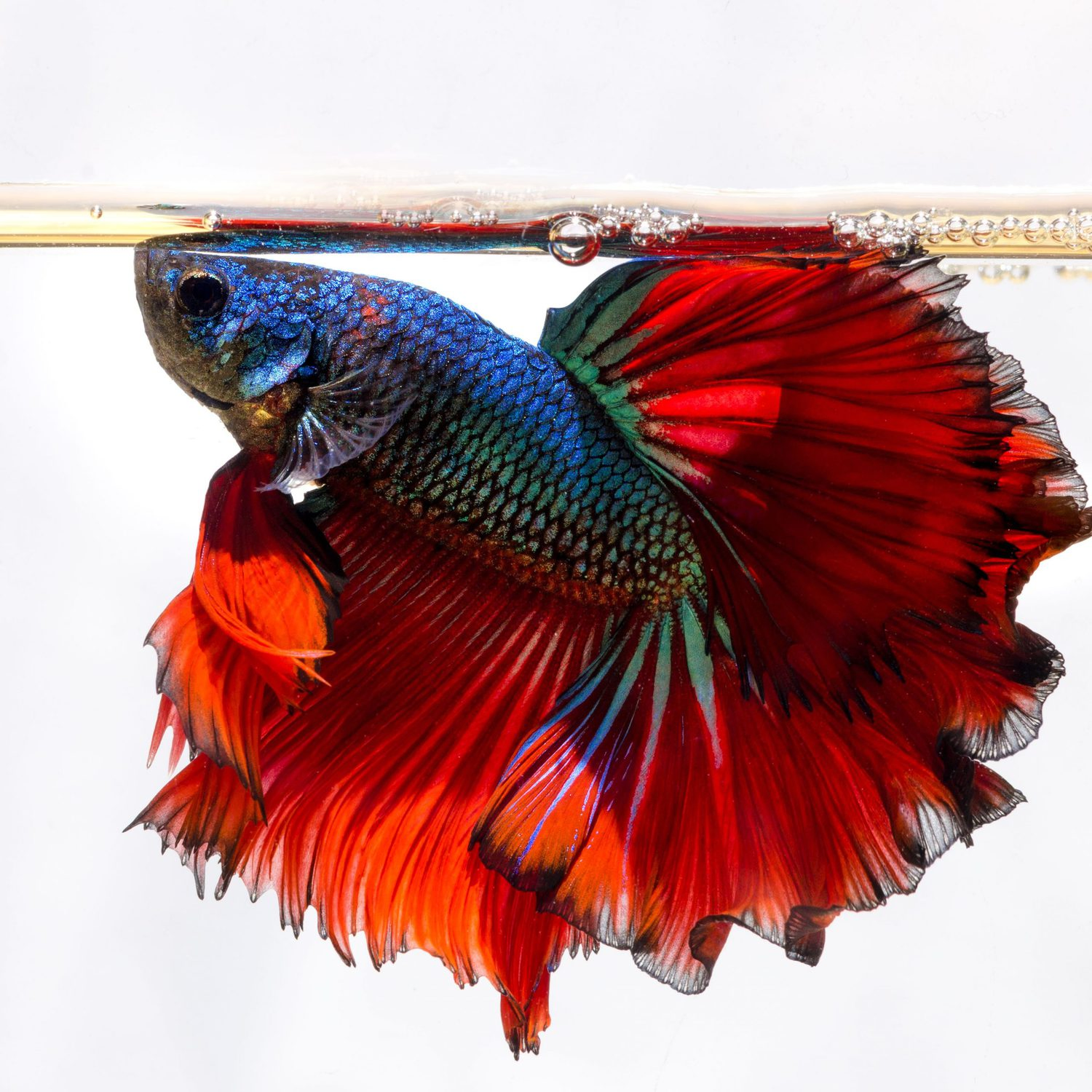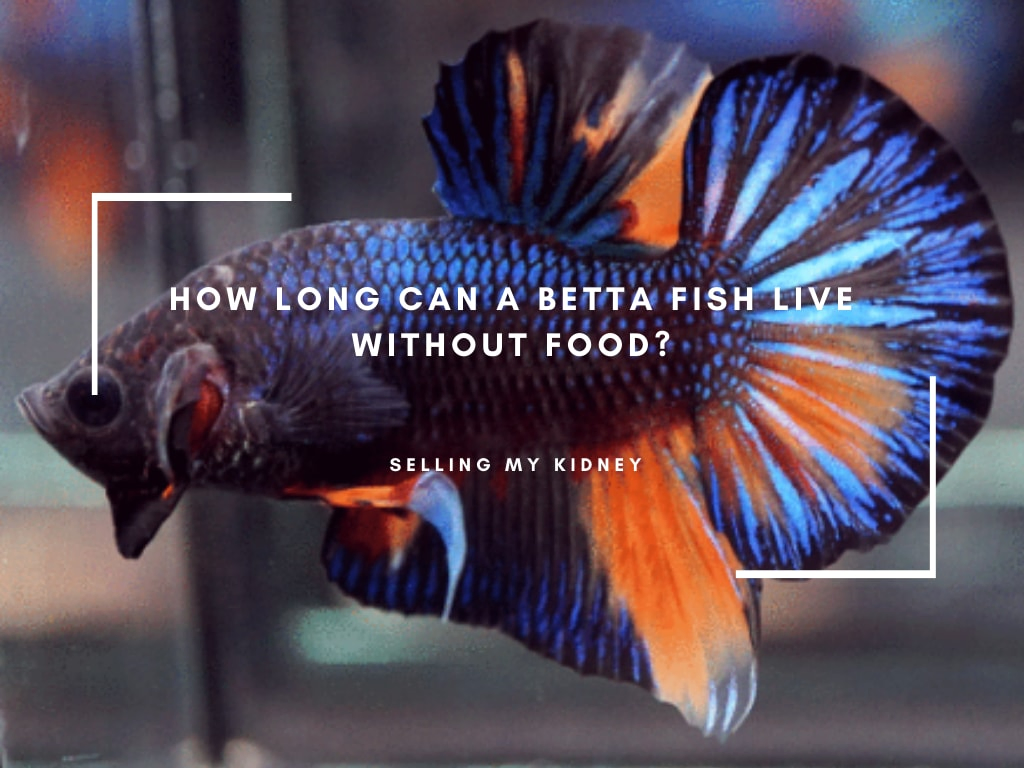While the average betta fish is rumored to be able to survive anything from 10 days to two weeks without food – is this something you should do? How well do you know your pet’s natural limits?
Pets are a major part of many people’s lives, but all pets require a certain degree of maintenance.
While you should never get a pet that you are not willing to take care of, most people want to go on vacation or sometimes face an emergency and they may find themselves unable to perform the regular caretaking duties for their pets.
What should you do in these situations? With a dog or cat, it is a little more straightforward – simply find a pet sitter. Is this also necessary for your less demanding pets, such as the betta fish?
It is true that many fish do not need to be cared for and eat every single day. Some experts even recommend fasting your betta fish every once in a while.
A betta fish can live perfectly fine with some alone time. However, there are other times when they won’t manage so well. So, when is it OK to leave your betta fish without food?
When going on vacation, you must ask yourself two very important questions: how long is your trip and how much do you care about your betta’s health?
How long can betta fish survive without food?

Depending on the circumstances of your fasting betta, your fish can survive for anything from 10 days to two weeks without food.
We must emphasize that this is surviving, not thriving. Starvation for extended periods of time is stressful for any fish and there is no guarantee that they will make it through such an ordeal.
As a pet owner, you should always prioritize the quality of life of your animals. While you can’t always be there for them, you should always do your best to keep them happy and healthy.
A healthy betta fish won’t die if you forget to feed it for two days or so. However, it is best that you find a way of feeding your fish if you will be gone for more than a couple of days.
Factors that determine the survival of your betta fish
Every betta fish is different, and while there is no way of knowing how your fish will react with any certainty, there are a few factors which can help you determine the chances your fish has.
Fish diet
If a fish has a naturally strong and nutritious diet, they will be in better shape to survive the time you spend away.
If they are already not receiving adequate nutrition (such as being fed herbivore food the whole time), the added stress of starvation could prove fatal.
Fish size
Although it may seem counterintuitive, larger fish can survive for longer than smaller fish without food. They have natural stores to handle time without food.
Smaller bettas, particularly babies, might not even survive for a week without food.
Fish age
Mature fish have the best chance of surviving prolonged times without food. This is due to a combination of natural development and the fact that age is associated with the size of a betta fish.
Older fish have a greater chance of surviving the ordeal.
The aquarium
Where your fish lives will determine how equipped their environment is for them to survive time alone.
If your fish live in a tiny bowl (such as the one they were likely purchased in), they will become stressed out and have a low survival chance.
Smaller tanks develop water quality problems much faster. In addition, many tanks marketed as being for bettas are inadequate.
You could potentially add more stress to an already stressful situation. Additional stress can be created if you don’t fit a heater to the tank and it becomes too cold.
The ideal tank should have a capacity of 10 gallons or more (lean more). If you have plants or other animals in the tank, a resourceful betta may even be able to find food living in the ecosystem of your tank.
How do you feed your betta fish during your vacation?

If you will be way for some time on vacation and it is going to be too long to not feed your bettas, there are several options.
Here are some dos and don’ts.
Don’t try to give them enough food to last the whole time you are gone. Not only will this not provide your betta fish with enough food, it will also be detrimental to the water quality.
Consider it this way – if you had to leave your kid home alone in the house for two weeks, would you leave them with two weeks’ worth of salad?
Of course not. The food would go bad after a day or two. For betta fish, this poses an even greater problem as they can’t simply throw away rotten food.
Instead, a mold-like substance will grow on the food as it begins to decay, which will eventually affect the water quality.
While bettas themselves are pretty clean and don’t require much maintenance in terms of ammonia output, rotting food will spike the levels.
A betta’s chance of surviving a stressful situation decreases when the tank becomes dirty. This adds to their stress.
This ammonia breakdown is another reason why slowly dissolving food needs to be monitored.
You may have discovered “weekend feeder” pellets. While these are a great option for a lot of fish, bettas don’t take to them particularly well. In the wild, bettas prefer to munch at things towards the surface of the water.
These instincts mean that they may not readily eat sunken food. In addition, you must be extra careful that they are formulated for the betta’s carnivorous diet.
Even then, these special pellets aren’t meant to be used for an extended period of time. There are better options which work perfectly for betta fish.
Do consider getting a timed feeder. This will keep the pellets dry and deliver the food systematically.
They offer a nice way for your betta to stick to their eating schedule.
Of course, they only work for a certain number of days. While they can be practical for a week or two, someone will need to fill up the feeder from time to time.
What can you do if you cannot feed your betta fish?

If you cannot feed your betta fish and you already know the odds are not in their favor, consider getting a temporary sitter. They can watch over your fish with very little personal inconvenience.
If you are uncomfortable with someone coming over to your house, you could consider simply taking the fish to them.
While the ideal tank is a little bit larger than a conventional bowl or vase, having them live in one of those for a few weeks will be better than failing to feed them altogether.
If you don’t live close to any friends or family, you could consider posting an ad online or searching through sites which specialize in pet sitting.
It will probably not be free, but it won’t be particularly expensive.
If you can find a friendly colleague, roommate, or neighbor who is willing to watch them for you, it is a nice idea to bring them back a little souvenir from your vacation.
Betta fish are resilient and relatively low-maintenance pets. But less demanding living requirements doesn’t mean you can simply stop taking care of them.
Doing your best to make sure your betta fish stays healthy is the best way to make sure it lives a long and happy life.
Understanding the natural limits of a betta fish is important so you know what you must do for your fish when you go away.
As a pet owner, you have a responsibility to do everything you can to ensure the health of your animals.
This also applies to the humble betta fish.


